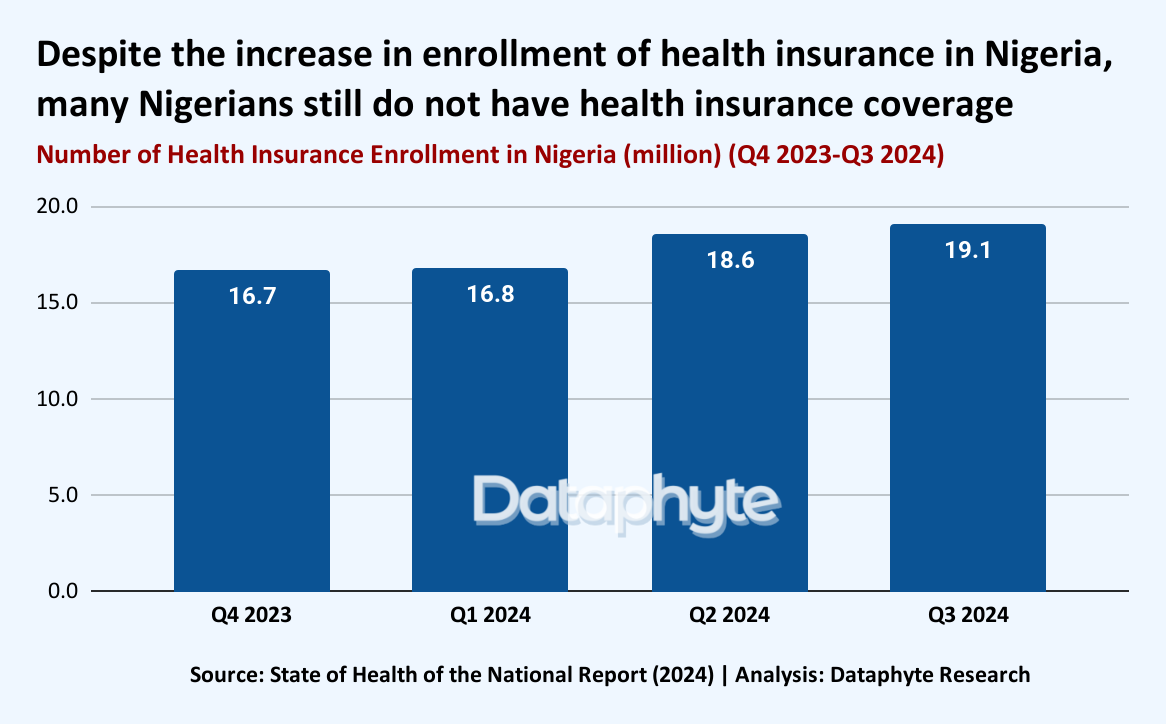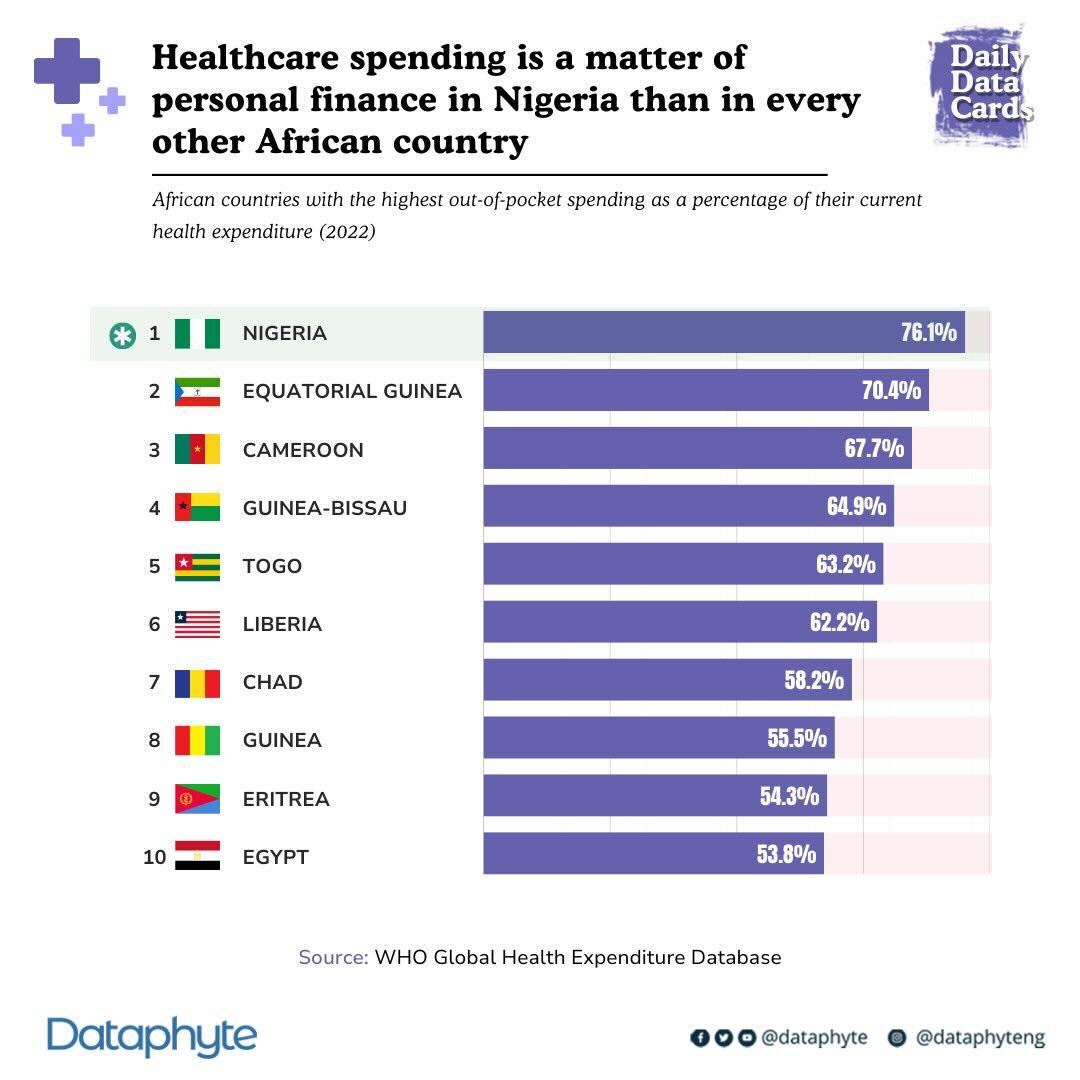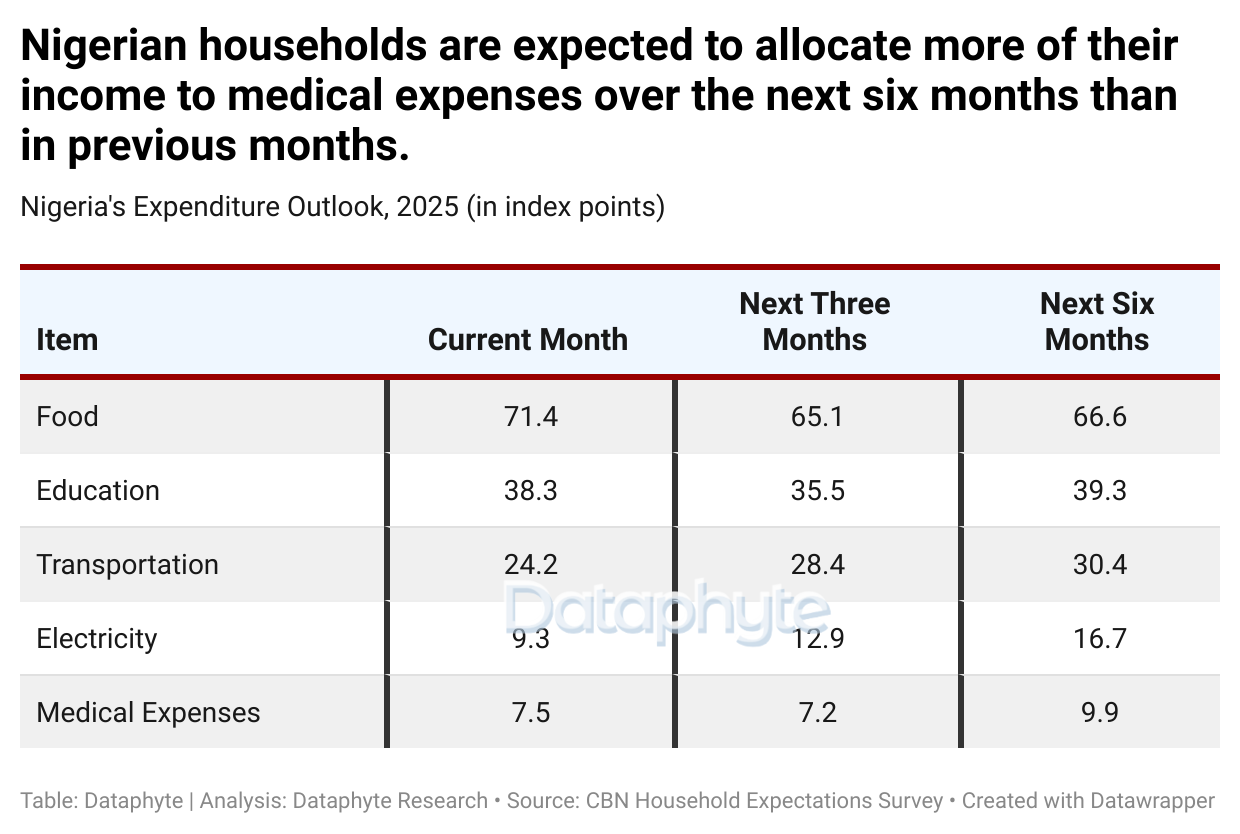Only an estimated 19 million Nigerians equivalent to 9.5% of Nigeria’s 200 million population were covered by health insurance, according to the Federal Ministry of Health and Social Welfare’s 2024 State of Health of Nigerians Report.
It implies that a greater number of Nigerians pay for their medical bills directly rather than through insurance-based healthcare encouraged by the World Health Organisation (WHO).
Thereby making medical expenses consume a large chunk of many Nigerians' incomes. When illness kicks in, the high cost of pharmaceutical drugs or hospital bills can discourage individuals from seeking treatment.
Although more Nigerians now have health insurance, many Nigerians still do not have health insurance coverage.
Also, Nigeria had the highest out-of-pocket healthcare spending in Africa in 2022, making healthcare a significant personal financial burden. According to data from the World Bank and WHO, Nigeria’s out-of-pocket health expenditure accounted for about 76% of total healthcare spending in the same year.
Nigerians healthcare expenditure
A survey by the Central Bank of Nigeria (CBN) titled “Household Expectations Survey” in January examined Nigerians’ financial priorities and their expectations for the economy in 2025. The survey revealed that Nigerians anticipate spending a larger share of their income on medical expenses over the next six months than in previous months.
The cost of pharmaceutical drugs and healthcare services has also surged in Nigeria. One key reason is that exchange rates and Nigeria’s dependence on imported medicines heavily influenced pharmaceutical prices.
According to Pharma West Africa, over 70% of medicines in Nigeria are imported, contributing to an estimated $4 billion in pharmaceutical expenditures out of Nigeria’s total $10 billion healthcare spending.
Initiatives and Budgetary Gaps
The State of Health of Nigerians Report (2024) also stated that one of the Federal Government’s primary goals is to reduce catastrophic healthcare spending by increasing health insurance enrollment.
The Coordinating Minister of Health & Social Welfare, Prof. Muhammad Ali Pate, explained that “the government is implementing several initiatives to reduce healthcare costs and improve access to essential medicines. Through the implementation of several initiatives, including supporting local medicine production and the removal of import duties and tariffs on essential medicine and medical consumables, with the goal of reducing the financial burden and improving access to essential medicines.”
However, for over a decade, the Nigerian government has failed to meet its benchmark for health sector budget allocations, reflecting long-standing challenges in the sector. As a result, many Nigerians seek quality healthcare services in the private sector or resort to self-medication.
In 2024, the national budget allocation for health saw a 25% year-on-year increase, reaching ₦1.34 trillion, up from ₦1.07 trillion in 2023. However, according to the Federal Ministry of Health and Social Welfare, this allocation still represents only 5% of the total national budget, falling significantly short of the 15% benchmark set by the Abuja Declaration of 2001.
Currently, Nigeria offers different health insurance programs designed to accommodate various income groups. For example, the State Health Insurance Agencies (SHIA) covers the poor and vulnerable, ensuring access to essential healthcare services while reducing out-of-pocket expenses.
As part of the efforts for Nigeria to achieve better health outcomes and Universal Health Coverage (UHC), more Nigerians need to enroll in available health insurance programs, especially those tailored to different income groups.
Thanks for reading this edition of Pocket Science. It was written by Salako Emmanuel and edited by Adijat Kareem.
Do you work at a Civil Society Organisation? Share your insights on Digital Public Infrastructure (DPI) and e-governance platforms in Nigeria. Take our 5-minute survey:
Do you work for any government agency? Share your insights on Digital Public Infrastructure (DPI) and e-governance platforms in Nigeria. Take our 5-minute survey:









